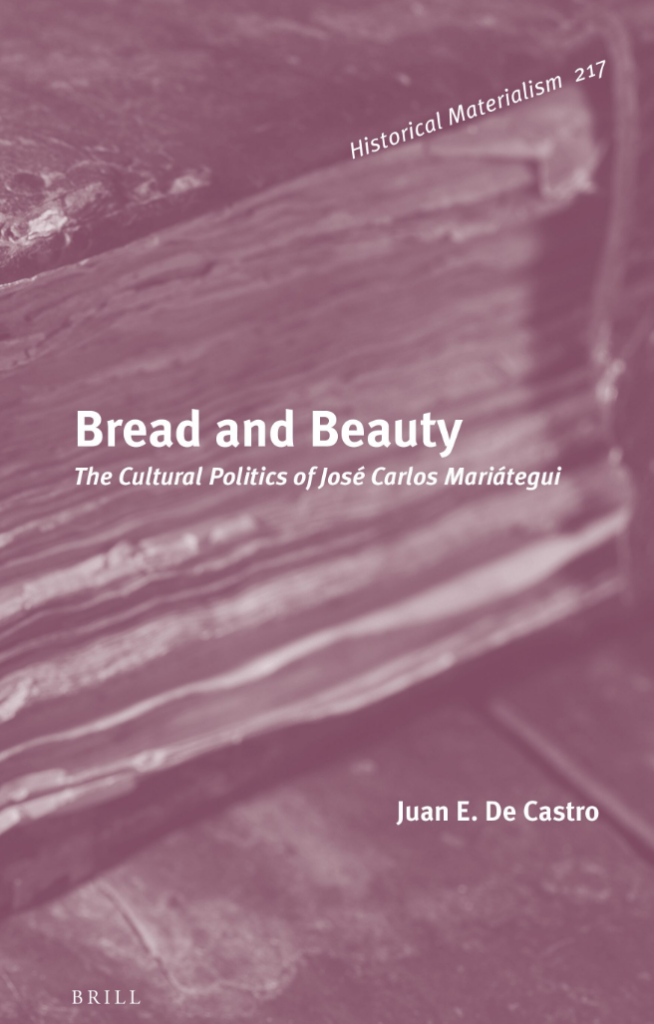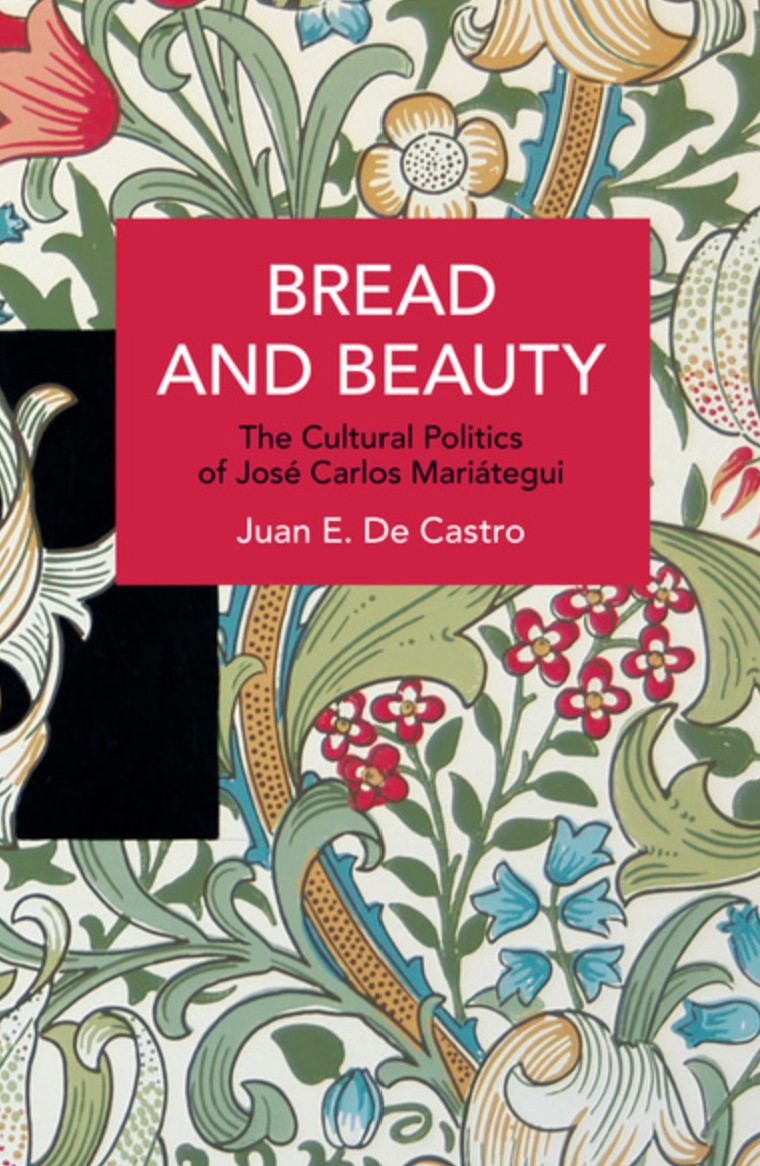Juan E. De Castro
In the spirit of this approach, Bread and Beauty not only studies the political signifi cance of cultural habits and products; it also looks at the cultural underpinnings of the political proposals found in Mariátegui’s writings and actions.
Biographical Note
Readership
All interested in the history of Marxism, especially in Latin America and the Global South, and anyone concerned with the history of Latin American culture, especially in the twentieth century.
Table of Contents
Acknowledgements
1 Introduction
1 Mariátegui’s Reception in the English-Speaking World
2 Mariátegui in (Mostly) Latin America
3 On This Book
2 José Carlos Mariátegui: The Making of a Revolutionary in the Aristocratic Republic
1 Lima in the Early 1900s
2 Manuel González Prada and the Radicals
3 Colónida
4 A Sublime Dance
5 Turn Left
6 A Polemical Exile
7 Italy and Gramsci
8 Back to Peru and Death
9 After-Death and After-Life
3 Mariátegui, Sorel and Myth
1 Mariátegui and Sorel
2 The Myth in Sorel
3 Sorel in Mariátegui
4 Rational Irrationalism
5 Indigenous Cultures and the Myth
6 Conclusion
4 José Carlos Mariátegui: From Race to Culture
1 The Peruvian and International Context
2 The Discrediting of Racism
3 Mariátegui as Anti-racist
4 Conclusion
5 Mariátegui’s Cosmopolitan Nationalism
1 One World Not Three (or Two)
2 Making Peru Peruvian
3 A Brief Pre-history of Mariátegui’s Indigenismo
4 Thinking Globally, Writing Locally
5 The Nation as Myth
6 Conclusion
6 José Carlos Mariátegui and the Politics of Literature
1 Art, Revolution and Decadence
2 The Absolute in Bergson, Ibérico, and Mariátegui
3 Revolutionary Literature and Reality
4 On Chaplin
5 Literature on Trial
6 César Vallejo
7 Conclusion
7 José Carlos Mariátegui and the Culture of Politics
1 Mariátegui’s Anti-politics
2 Haya’s Impossible Candidacy
3 The New Spirit
4 The Platform of the Partido Nacionalista Libertador del Peru
5 Party Structure
6 Caudillismo or/and Fascism
7 Partido Socialista
8 Popular Fronts
9 Conclusion
8 Mariátegui and Argentina: Celebrating Buenos Aires, Criticising Communism
1 Buenos Aires and Mexico City as Cultural Meridians
2 Mestizo Argentina
3 Motley Crew
4 Defending Marxism
5 Defense of Heresy
6 Apologia pro vita sua
7 Amauta/Sur
8 Conclusion
9 Mariátegui and Che: Reflections on and around Walter Salles’s The Motorcycle Diaries
1 Hugo Pesce as Mediator
2 From Mariátegui to Che
3 The New Man
4 Mariátegui as a Founder of Discursivity
5 Conclusion: Mariátegui, Che and Borges
10 Epilogue: A Tale of Two Quijanos
1 The ‘Reencounter’
2 Mode of Production
3 Mariátegui’s Debates
4 Thirty Years Later
5 Mariátegui, Anti-Eurocentrism, and Modes of Production
6 Alternative Rationality
7 Quijano as the Paradigm
8 Conclusion: Mariátegui Unplugged
Bibliography
Index


